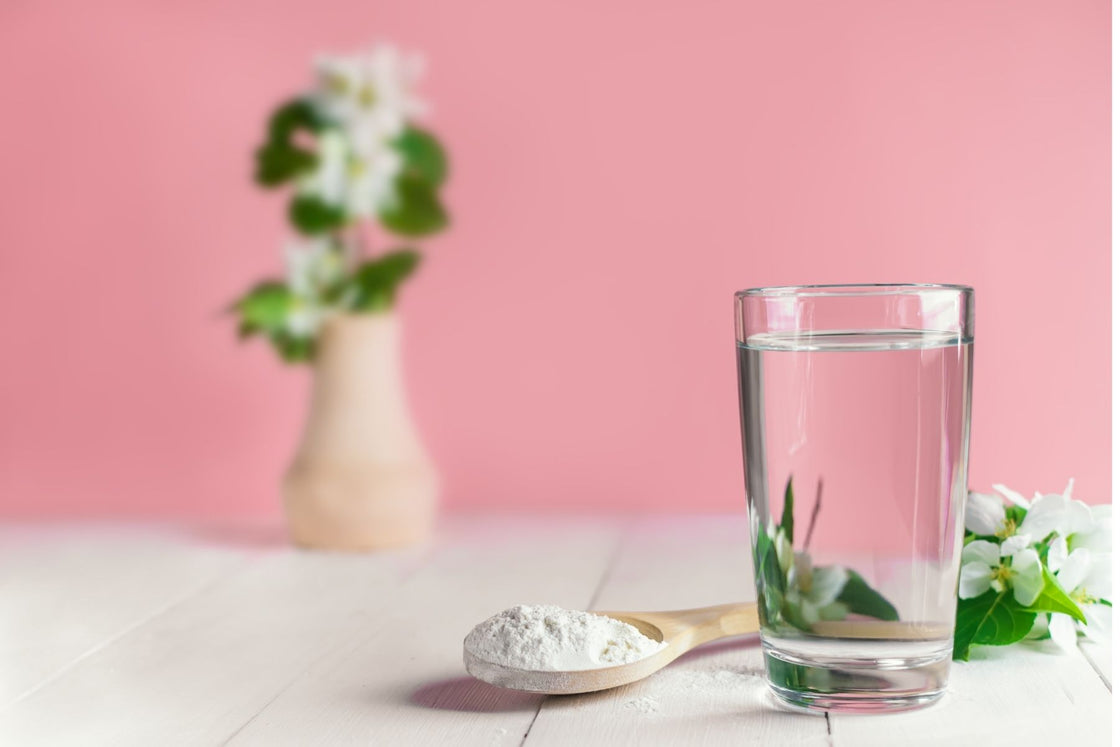This hard-hitting fact makes menopausal women take notice of their skin health! According to research women lose 30% of their collagen within the first 5 years on the menopause. Food Scientist and Nutritional Therapist Susie Debice explains how to nourish your skin from within.
Collagen decline
It’s a staggering fact to come to terms with and the reason why menopausal women often feel like their skin ages overnight with the menopause. Further research reveals that on average post-menopausal contain to lose an additional 2% of collagen a year. Losing one third of your skin’s collagen is the most noticeable thing for accelerating you towards the visible signs of ageing. Most women feel that this literally happens over-night and regret not acting sooner in terms of supporting collagen renewal and reserves in the years leading up to the menopause.
What exactly is collagen
Most women have heard about collagen in terms of skin tone and elasticity and have possibly spent a small fortune on topical face serums and moisturising creams that claim to plump skin cells, improve collagen levels and smooth over fine lines and wrinkles. However, once you start approaching the menopause it’s time to start nourishing your skin and collagen levels from within rather than just focusing on how your skin looks and feels on the outside.
Collagen provides the scaffolding that holds up your skin by creating an incredibly tensile mesh of collagen fibres. This collagen network supports other stretchy protein fibres such as elastin that create skin flexibility and traps hyaluronic acid which locks in water to hydrate the skin and create plump firm skin cells.
Collagen renewal
Oestrogen plays an important part in collagen synthesis, repair and renewal since this female hormone influences the cellular enzymes that knit together new collagen fibres from available peptides and amino acids which are the building blocks of all protein molecules in the body. If your diet is low in the types of proteins that contain the right types of peptides and amino acids, then this may limit your collagen renewal process.
Important phytoestrogens
As oestrogen levels decline during the menopause, the rate at which collagen levels are lost form the body drastically starts to increase. This is where phytoestrogen supplements may be helpful. These clever plant oestrogen-like compounds have received much attention for their ability to slot onto oestrogen receptor sites and stimulate mild oestrogenic activity within the cells and body tissues. As natural oestrogen levels decline with the menopause many of the oestrogen receptor sites, which were once occupied, are now freely available for these phytoestrogens to dock onto and create a baseline level of oestrogenic support. There are lots of different types of phytoestrogen supplements and MenoMin contains soy isoflavones and has good results in terms of soothing common menopause complaints.
Top up on vitamin C
Another key factor in collagen renewal is vitamin C as the enzymes that repair and create new collagen fibres are dependent on vitmain C for their activity. There are times when vitamin C tends to get quickly depleted such as stress and infection which may leave collagen renewing enzymes inactive. Supplementing with a good quality form of vitamin C such as One Nutrition Revive & Go Immunity which contains highly absorbable Pureway C helps you keep on top of your daily vitamin C intake.
Hydrolysed collagen peptides
Finally, one way to help provide your body with the types of peptides and amino acids required to build new collagen fibres is to supplement with hydrolysed collagen peptides. These powders can be easily added to soups or smoothies or simply added to water and offer an easy way to support your body’s natural collagen reserves.



